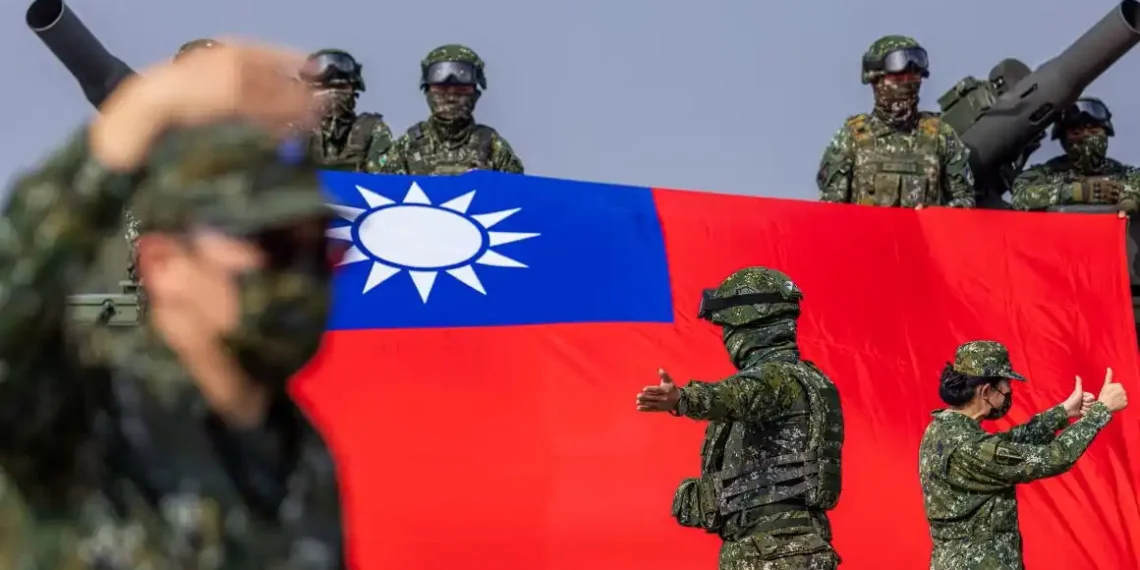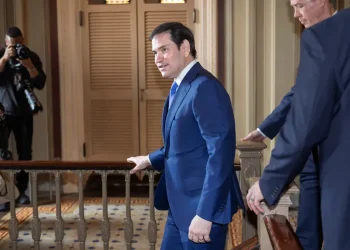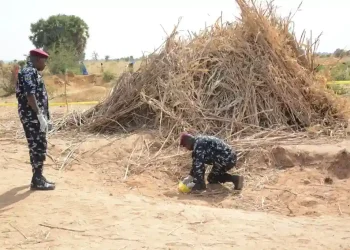Taiwan’s Draft-Dodging Scandal Exposes Deeper Flaws in Military Preparedness
A celebrity draft-dodging scandal is rattling Taiwan—and not just for the headlines. At its core, the controversy is exposing serious cracks in a military conscription system that could one day form the island’s first line of defense in a conflict with China.
On Monday, Taiwanese prosecutors indicted 28 people in a sweeping investigation. Among them: a ring of four people accused of helping 24 healthy men dodge mandatory service by faking high blood pressure diagnoses—allegedly pocketing 7.63 million Taiwanese dollars (about $255,000) in the process. At least 11 entertainers are now under investigation, including actor Darren Wang, who rose to fame in the 2015 hit Our Times. Prosecutors say Wang paid $120,000 for a falsified medical exemption. He has since begun military service, as required for men aged 19 to 36.
While the scandal has shocked the public, many in Taiwan see it as part of a broader, long-standing problem: military service that feels more like a waste of time than real preparation for war.
“It’s Not the Training That’s Exhausting—It’s the Pointlessness”
According to defense analysts, what discourages young men from serving isn’t fear of harsh training—it’s the widespread sense that it’s all for show.
“Most of the time during service is spent on non-combat-related tasks,” said Chieh Chung, a research fellow at Taiwan’s Institute for National Defense and Security Research (INDSR). “It feels like a waste of a year.”
That sentiment is echoed in former conscripts’ stories: mowing lawns, guarding gates, sitting through endless lectures, and practicing outdated ceremonial drills. Some have trained with aging rifles shared between units. Others report going through cannon and mortar exercises with no live ammunition at all.
U.S. defense officials—speaking anonymously—warn that Taiwan’s reservist system is the “soft underbelly” of its defense strategy. While millions of names may appear on paper, the reality is that years of shortened service and minimal refresher training have left many reservists dangerously unprepared.
Mandatory But Meaningless?
Taiwan’s conscription system dates back to 1949, when the Nationalist government, fleeing Communist forces in mainland China, established it as a bulwark of national defense. Originally, it required two years of service in the army or three in the other branches. But over time, the service period shrank, reaching just four months under the previous policy—sparking concerns that conscripts were being shuffled through the system with little real training.
Adding fuel to the fire, cases of suspected obstruction of service jumped from 309 in 2021 to 553 in 2023, according to the Ministry of the Interior.
“It is imperative to reform military service as quickly as possible,” said INDSR fellow Wu Tzu-li. “Weapons are only as effective as the people trained to use them.”
Reforming a System That’s Lost Public Trust
To its credit, Taiwan’s government is trying to fix the problem. Former President Tsai Ing-wen made military reform a top priority when she took office in 2016, criticizing the system for wasting manpower and operating inefficiently.
And with China stepping up its military pressure—launching warplanes and naval vessels near the island nearly every day—Taiwan has been forced to act. In 2024, the government extended active-duty service to one full year, introduced more live-fire drills, and shifted the focus of training toward modern combat tactics.
One recent conscript, Alex Chang, told CNN the difference was obvious. “The sounds of bullets firing and grenades exploding have been going non-stop on the training ground,” he said.
Still, the jury’s out on whether the reforms are truly changing the system—or just stretching out more of the same.
“The key is what kinds of training conscripts receive,” said Chieh. “If the content doesn’t change, they’ll still feel like they’ve wasted a year.”
U.S. officials have noted some progress but say Taiwan still needs to modernize its equipment and reorganize its reserve units. A particular focus, they say, should be on asymmetric warfare—such as drone operations and anti-aircraft defenses.
In a statement, Taiwan’s Defense Ministry defended the changes, calling military service a constitutional civic duty. The new one-year program, it said, allows for “systematic and comprehensive” training that includes combat skills, joint exercises, and specialized stationing.
A Stark Cultural Comparison: South Korea
Compare that with South Korea, where mandatory military service is treated not as a burden—but as a badge of honor. Stars like BTS members RM and V recently completed their 18-month tours, saluting to fans who traveled from across the globe to welcome them home. Serving doesn’t damage a career—it often boosts it.
Even soccer star Son Heung-min, who earned an exemption by winning gold at the 2018 Asian Games, still went through four weeks of basic training—and was widely praised for doing so.
In Taiwan, by contrast, military service is more often viewed as an outdated obligation. Until the culture changes, experts say, reforms may fall flat.
“If Taiwan wants its citizens to take conscription seriously,” said one former draftee, “the government has to show that the time we give isn’t being thrown away.”
The Bigger Picture
At a time when threats from Beijing are increasingly real, Taiwan’s military can’t afford to rely on “paper” reservists or symbolic training. It needs a defense force that’s motivated, modernized, and mission-ready.
And that means more than just catching high-profile draft-dodgers. It means restoring faith in service—by making it something worth showing up for.
This article was rewritten by JournosNews.com based on verified reporting from trusted sources. The content has been independently reviewed, fact-checked, and edited for accuracy, neutrality, tone, and global readability in accordance with Google News and AdSense standards.
All opinions, quotes, or statements from contributors, experts, or sourced organizations do not necessarily reflect the views of JournosNews.com. JournosNews.com maintains full editorial independence from any external funders, sponsors, or organizations.
Stay informed with JournosNews.com — your trusted source for verified global reporting and in-depth analysis. Follow us on Google News, BlueSky, and X for real-time updates.














